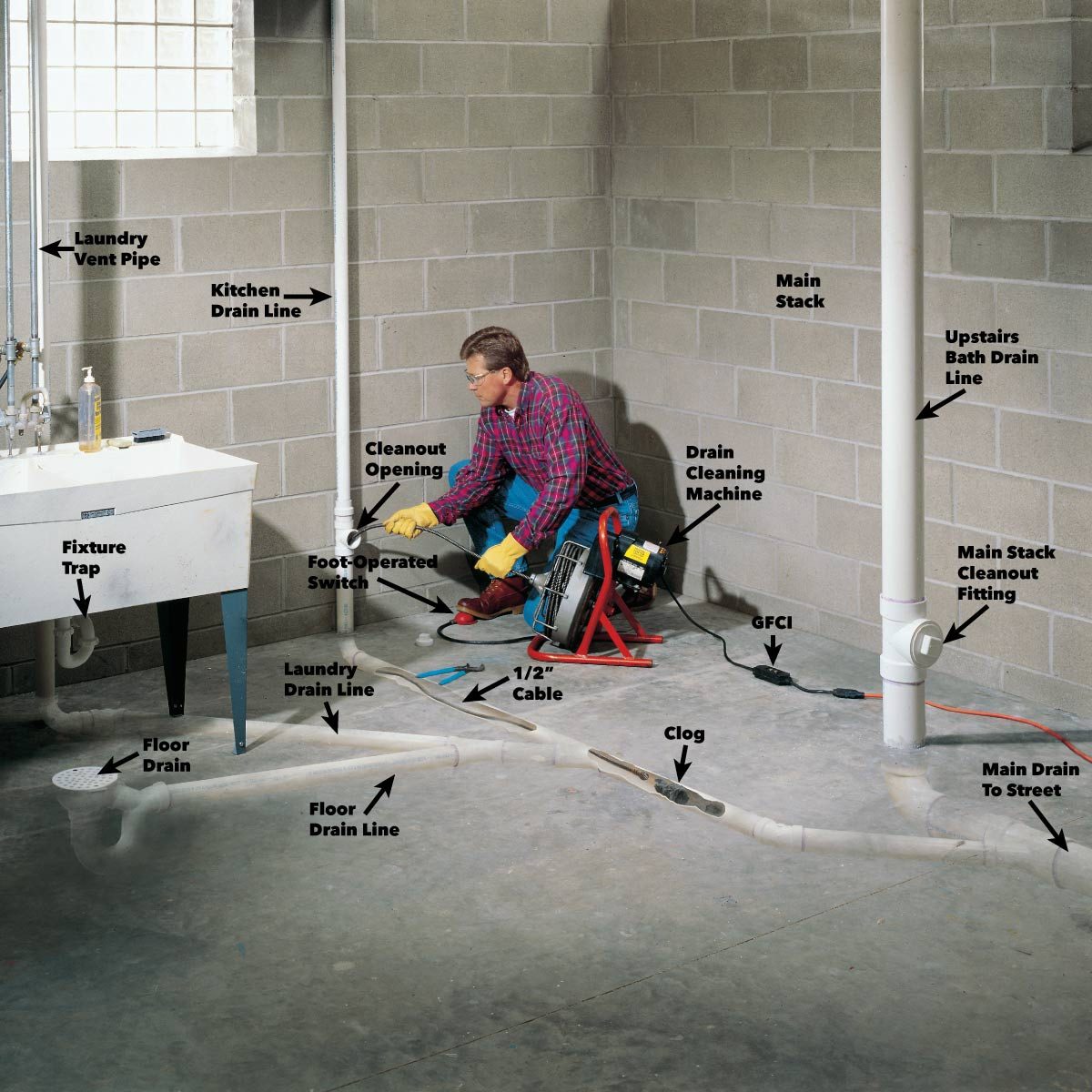Imagine this: you’re working on a project in your garage, and you accidentally spill a large bucket of paint. It spreads across the floor, and you realize you’re in a predicament. You need to clean it up quickly, but how do you prevent the paint from running into the sewer system and causing a mess? The answer lies in your garage floor drain, a seemingly mundane feature that plays a crucial role in managing liquid waste in your home. But here’s a question that may have crossed your mind: does this drain need a trap?

Image: www.reddit.com
That’s a question that many homeowners grapple with, especially when it comes to garage floor drains. These drains offer a practical solution for diverting water, oil, and other fluids away from your workspace. However, there’s a common misconception that every drain necessitates a trap. This article delves into the complexities of garage floor drain traps, separating fact from fiction and equipping you with the information you need to make the right decision for your home.
Why is a Trap Necessary for Most Drains?
The primary function of a trap in plumbing systems is to prevent sewer gases and unpleasant odors from entering your home. This is achieved by creating a water seal in the drainpipe, which acts as a barrier against these noxious fumes. Most drains, including those in your kitchen and bathroom, require a trap for this essential health and hygiene reason.
But garage floor drains, unlike their indoor counterparts, often operate in a different environment. Their location outside the main living area, combined with their primary purpose of handling water and other liquids, necessitates a more nuanced approach.
Understanding Garage Floor Drains
Garage floor drains are commonly found in attached garages, offering a convenient way to manage the spills and runoff associated with various activities such as car maintenance, hobbies, and general cleaning. However, these drains often face unique challenges. Unlike sinks or toilets, garage floor drains can be exposed to extreme temperatures, potentially freezing water in the trap and hindering proper drainage.
Furthermore, the presence of volatile chemicals and substances in garage settings can react with the water seal, compromising its effectiveness and leading to undesirable odors. This creates a dilemma: the need for a trap to prevent sewer gases versus the potential drawbacks in a garage environment.
The Role of a Trap in a Garage Floor Drain
The presence or absence of a trap in a garage floor drain often depends on the specific design and local building codes. In some jurisdictions, a trap may be mandated for all drains, regardless of location. However, the practicality of a trap in a garage setting is subject to debate.
While traps undoubtedly serve a vital purpose in preventing sewer odors, they can create issues in garages prone to freezing temperatures. The water seal in the trap can freeze, rendering the drain ineffective and leading to backups. This problem can be particularly problematic in regions with harsh winters.

Image: dandkmotorsports.com
Alternatives to Trapped Garage Floor Drains
In situations where a trap may not be practical, several alternatives exist to address the issue of sewer odors. One popular solution is the use of an “S” trap vent. This type of vent allows air to circulate in the drainpipe, preventing the formation of a vacuum and mitigating the risk of odor.
Another option involves utilizing a drain cover with a built-in odor barrier. These covers effectively block sewer gases from entering the garage while allowing water to drain freely. The choice between these alternatives depends on various factors, including the specific drainage needs, local building codes, and personal preferences.
Expert Advice and Tips
If you’re unsure whether your garage floor drain needs a trap, consult a licensed plumber. They can assess your specific situation, considering factors such as the location of the drain, the climate, and the potential for odor. Remember, compliance with local building codes is paramount to avoid legal issues and ensure safety.
Furthermore, regular maintenance of your garage floor drain is crucial. This involves removing debris and sediment from the drainpipe to maintain smooth drainage and prevent blockages. A clean and well-maintained drain is less prone to freezing and odor issues.
FAQ
Q: Is it illegal to have a garage floor drain without a trap?
A: Local building codes vary, so it’s recommended to check with your municipality to understand the regulations in your area.
Q: What can I do if my garage floor drain smells even though it has a trap?
A: If your drain still emits odors despite having a trap, there could be several factors contributing to the problem. Inspect the trap for any blockages or leaks. Ensure the vent is functioning properly.
Q: Can I install a trap myself, or should I hire a professional?
A: While some DIY enthusiasts may attempt to install a trap, it’s best to hire a licensed plumber for this task. They possess the expertise to ensure proper installation and prevent potential plumbing issues.
Does A Garage Floor Drain Need A Trap
Conclusion
Determining whether your garage floor drain needs a trap is a matter of careful consideration. While traps are essential in many plumbing situations, their value in garage settings can be debatable. Factors such as local building codes, climate, and potential for odor need to be evaluated to determine the best approach. Consulting with a licensed plumber provides valuable insights and ensures a safe and efficient drainage system for your home.
Are you interested in learning more about garage floor drains and their specific needs? Share your thoughts and questions in the comments section below!





